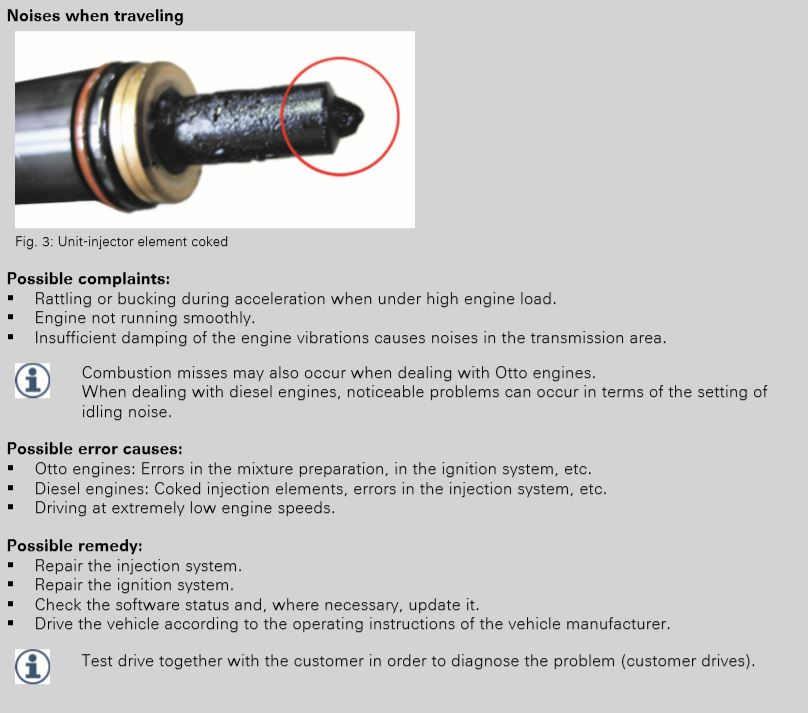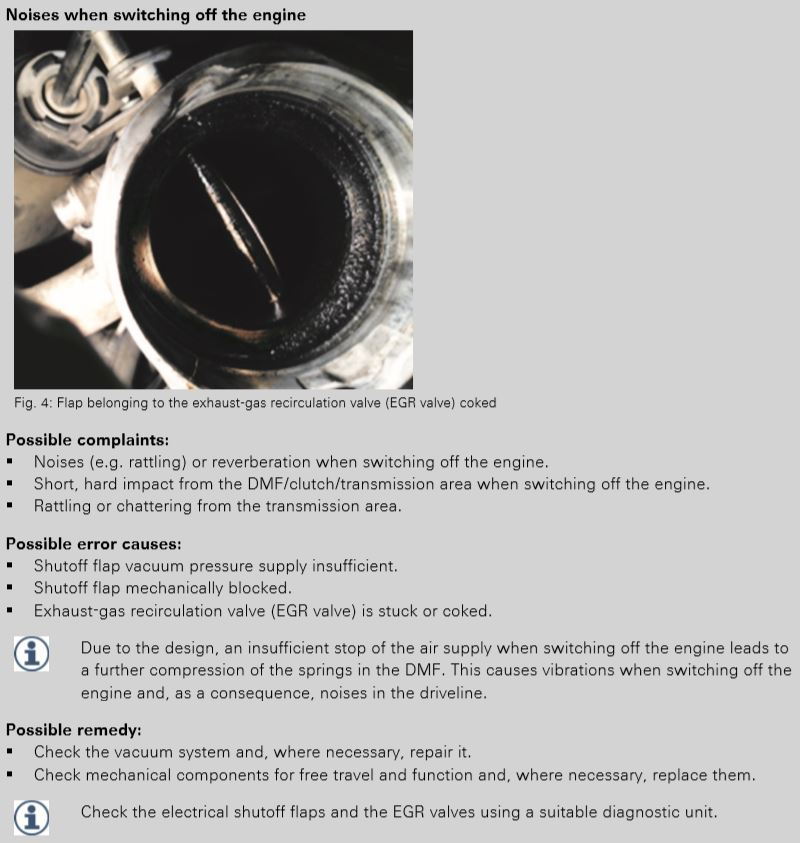Dual mass flywheel
Noises when starting the Engine, when traveling, or when switching off the engine
Unusual noises when starting the engine, when traveling, or when switching off the engine are often associated with a possible dual-mass flywheel ( DMF) defect.
However, the noises are actually caused by sources of error in the periphery of the DMF.



The Dual mass flywheel, or DMF, is designed to protect the driveline from the torsional vibrations of the engine. It’s fitted mostly to diesel engines and high torque output petrol engines. Ultimately, its aim is to make the engine starting process, the idling process and the gearchange smoother. It consists of two flywheels that rotate independently of each other. One is attached to the gearbox’s input shaft and the other to the engine. Between the two flywheels are a series of springs, which dampen the engine vibrations and prevent most of them from reaching the gearbox. How reliable are dual mass flywheels? This all depends on your driving style. Symptoms of a worn DMF include increasing vibrations, especially through the clutch pedal. You may also hear a rattle, which will disappear when you depress the clutch. DMFs can last more than 100 000 km but may wear out in as little as 20 000 – it depends on the quality of the part and your driving style. Many mechanics recommend changing the dual mass flywheel whenever the clutch is replaced, because it’s accessed more easily when this job is being carried out, but there’s a good chance the DMF will be in good health. The problem is, you just don’t know until you remove it, and it’s considered a false economy to leave it in place and change only the clutch.

